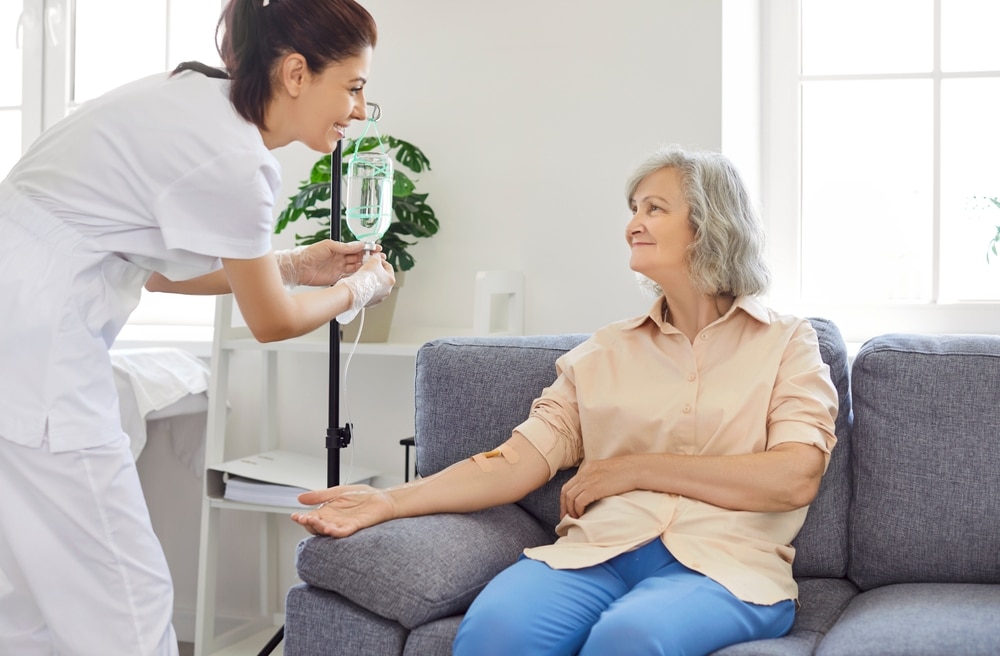Combatting the Battle: Top Strategies to Ease Chemotherapy and Radiation Side Effects
When individuals embark on the challenging journey of chemotherapy or radiation therapy, it’s not uncommon to feel overwhelmed. Facing a cancer diagnosis and then diving into the complexities of treatment can make anyone feel like they’re in a relentless struggle. While these treatments are undeniably powerful allies in the fight against cancer, they can bring a host of side effects that weigh heavily on both your body and mind. Understanding how to manage these side effects is not just important—it’s essential for maintaining a better quality of life throughout your treatment. A promising approach gaining traction is integrated oncology, which combines traditional cancer treatments with a variety of supportive therapies aimed at easing the journey.
Recognizing Side Effects
The primary goal of chemotherapy and radiation is to obliterate cancer cells, yet this battle is a double-edged sword. Alongside their intended effects, these treatments can unintentionally damage healthy cells, leading to a range of side effects that can feel daunting. From nausea and fatigue to hair loss and emotional distress, the aftermath can be significant. Here are some common side effects you may encounter:
– Nausea and vomiting
– Fatigue
– Hair loss
– Weakened immune system
– Emotional distress
Though these challenges can be overwhelming, it’s crucial to know that you don’t have to face them alone. There are effective strategies and support systems designed to help you regain control and feel better.
A Comprehensive Care Approach
Cancer treatment doesn’t solely target the visible symptoms. A holistic approach that integrates both physical and emotional support can bring about more promising outcomes. Understanding the psychological impacts of cancer can be just as vital as treating the physical ones. Integrated oncology blends standard medical practice with complementary therapies such as nutritional counseling, exercise programs, and mental health support. This combination aims to treat you as a whole person, enabling you to cope better and potentially achieve improved treatment results.
Nutrition and Hydration
Let’s talk about food, because what you eat plays a major role in your recovery. Opting for smaller, frequent meals can be your best friend in managing nausea. Foods rich in nutrients are essential in boosting your energy levels. Ever tried ginger or peppermint? These natural remedies can be incredibly helpful in battling queasiness. And remember, staying hydrated is crucial; keeping your body well-hydrated supports its natural detox processes, which is especially important when undergoing treatment.
It may be worth your time to consult with a nutritionist who specializes in oncology. Together, you can craft a personalized dietary plan that ensures your body gets the nutrients it truly needs to heal and feel its best during this trying time.
Maintaining Physical Activity
If you’re feeling drained, you’re not alone—fatigue is one of the most common side effects of cancer therapies. However, engaging in light physical activities can really turn the tide. Simple activities like yoga, walking, or even stretching can boost your circulation, improve your mood, and help restore some of that lost energy. It’s all about listening to your body and pacing yourself wisely—after all, nobody knows your body better than you do. If you’re unsure about where to begin, don’t hesitate to reach out to physical therapists who can design an exercise routine that fits your energy levels and keeps you safe.
Managing Stress
Let’s be real: cancer can take a heavy toll on your mental health. It’s common to grapple with feelings of anxiety, fear, or even depression during this journey—so it’s vital to acknowledge these emotions rather than suppress them. Techniques like mindfulness and meditation can be incredibly transformative. Additionally, connecting with others who are in the same boat can be incredibly cathartic. Support groups offer invaluable spaces where you can share experiences and find comfort; knowing you’re not alone can make a world of difference.
Mental wellness is a key pillar of integrated oncology, ensuring that your emotional health is prioritized just as much as your physical state.
Use of Complementary Therapies
Incorporating complementary therapies such as acupuncture, massage, and aromatherapy can profoundly enhance your overall well-being. These treatments can help alleviate various side effects—in fact, an increase in relaxation and decrease in pain can improve your overall quality of life during treatment. It’s important to remember that these therapies should complement, not replace, your standard medical treatments; think of them as additional tools in your recovery toolkit.
The Importance of Support Systems
It’s crucial to remember that you don’t have to walk this path by yourself. A strong support system made up of friends, family, and caregivers can greatly enhance your treatment experience. Don’t hesitate to vocalize your needs—whether you need help with household tasks or just an understanding ear to listen. Sometimes, it’s the small gestures from your loved ones that offer the most comfort.
Bringing It All Together
Mitigating the side effects of chemotherapy and radiation goes beyond just medication; it encompasses self-care in every sense of the word. Integrated oncology helps you combine conventional treatments with supportive therapies tailored to foster holistic healing.
Embrace the fact that this journey is uniquely yours. Make self-care a priority, and take it one step at a time. Recognizing that each small effort can contribute to your overall recovery makes a world of difference. Remember, you are not defined by your diagnosis; you are a resilient individual navigating a challenging journey, and there’s hope on the horizon.
















